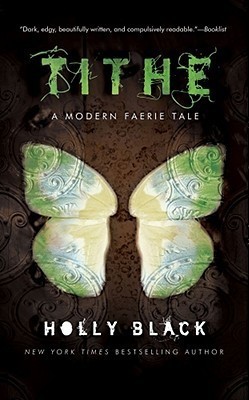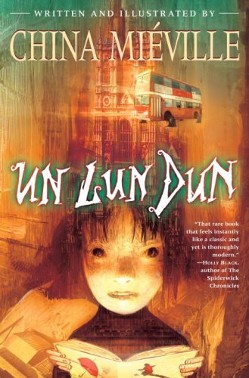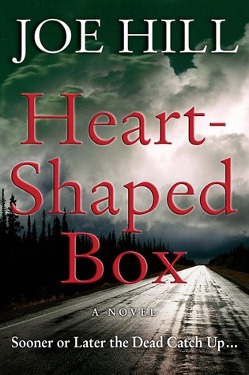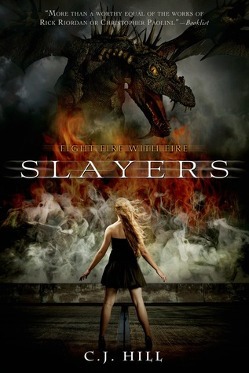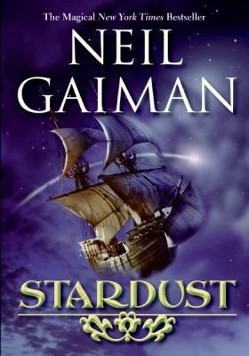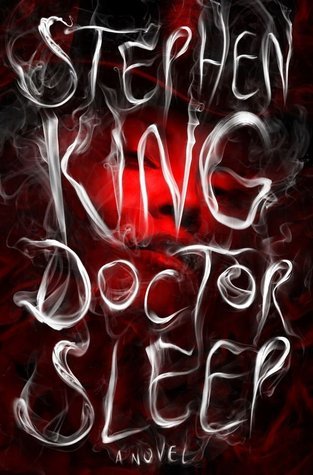5 New Books for 2014
One of my goals for 2014 is to experience as many new authors and books as possible. To kick off the new year, here’s a list of five books, queued up on my Kindle and ready to go. Have recommendations for more? Please, let me know in the comments below!
1. Tithe, by Holly Black
Sixteen-year-old Kaye is a modern nomad. Fierce and independent, she travels from city to city with her mother’s rock band until an ominous attack forces Kaye back to her childhood home. There, amid the industrial, blue-collar New Jersey backdrop, Kaye soon finds herself an unwilling pawn in an ancient power struggle between two rival faerie kingdoms – a struggle that could very well mean her death.
Why I Chose It:
I was convinced to read Doll Bones, a middle grade fantasy written by Holly Black, after reading this review. While plot-wise, I felt there were some problems (I’ll be writing my own review in the coming weeks), the language was so beautifully crafted that I decided I wanted to read more of Black’s work.
Tithe, written for adults rather than children, was mentioned in the same review, so I decided to go for it.
2. Un Lun Dun, by China Mieville
What is Un Lun Dun?
It is London through the looking glass, an urban Wonderland of strange delights where all the lost and broken things of London end up … and some of its lost and broken people, too – including Brokkenbroll, boss of the broken umbrellas; Obaday Fing, a tailor whose head is an enormous pin-cushion, and an empty milk carton called Curdle. Un Lun Dun is a place where words are alive, a jungle lurks behind the door of an ordinary house, carnivorous giraffes stalk the streets, and a dark cloud dreams of burning the world. It is a city awaiting its hero, whose coming was prophesied long ago, set down for all time in the pages of a talking book.
When twelve-year-old Zanna and her friend Deeba find a secret entrance leading out of London and into this strange city, it seems that the ancient prophecy is coming true at last. But then things begin to go shockingly wrong.
Why I Chose It:
I actually don’t recall precisely where I encountered this book, only that I stumbled on it while searching for blogs related to children’s fantasies like Coraline and The Graveyard Book. I have a weakness for stories that are distorted reflections of real-world places, and I also have a weakness for children’s fantasies. Seemed like a no-brainer to me.
3. Heart Shaped Box, by Joe Hill
Aging, self-absorbed rock star Judas Coyne has a thing for the macabre — his collection includes sketches from infamous serial killer John Wayne Gacy, a trepanned skull from the 16th century, a used hangman’s noose, Aleister Crowley’s childhood chessboard, etc. — so when his assistant tells him about a ghost for sale on an online auction site, he immediately puts in a bid and purchases it.
The black, heart-shaped box that Coyne receives in the mail not only contains the suit of a dead man but also his vengeance-obsessed spirit. The ghost, it turns out, is the stepfather of a young groupie who committed suicide after the 54-year-old Coyne callously used her up and threw her away. Now, determined to kill Coyne and anyone who aids him, the merciless ghost of Craddock McDermott begins his assault on the rocker’s sanity.
Why I Chose It:
I bought this on whim while browsing through the Amazon Kindle store. I enjoy supernatural thrillers, and the plot sounded interesting. It’s been sitting in my queue for a while, so I decided it was time to go back and read it.
Recently, I discovered that Joe Hill is a pen name for one of Stephen King’s sons, Joseph Hillstrom King. Stephen King is one of my favorite authors. I’m now curious to see how Hill’s style differs from his father’s.
4. Slayers, by C.J. Hill
Dragons exist. They’re ferocious. And, in this novel from C. J. Hill, they’re smart: before they were killed off by slayer-knights, they rendered a select group of eggs dormant so their offspring would survive. Only a handful of people know about this, let alone believe it—these “Slayers” are descended from the original knights and are now a diverse group of teens that includes Tori, a smart but spoiled senator’s daughter who didn’t sign up to save the world.
The dragon eggs have fallen into the wrong hands. The Slayers must work together to stop the eggs from hatching. They will fight; they will fall in love. But will they survive?
Why I Chose It:
This is another book I found through a blog (once again, I forget where; apologies to the author!) I like fantasies that take place in a modern setting, especially when they relate back to something that got its start in the distant past. I have no previous experience with this author, so it was a shot in the dark.
5. Stardust, by Neil Gaiman
In the sleepy English countryside of decades past, there is a town that has stood on a jut of granite for six hundred years. And immediately to the east stands a high stone wall, for which the village is named. Here in the town of Wall, Tristran Thorn has lost his heart to the hauntingly beautiful Victoria Forester. One crisp October night, as they watch, a star falls from the sky, and Victoria promises to marry Tristran if he’ll retrieve that star and bring it back for her. It is this promise that sends Tristran through the only gap in the wall, across the meadow, and into the most unforgettable adventure of his life.
Why I Chose It:
Neil Gaiman is one of my all-time favorite authors. I’ve read quite a few of his books. But for some reason, Stardust was always at the back of my list. Now, in 2014, it’s time to change that.
Are there any books you’re planning to read in the new year? Then leave a comment and tell me about them 🙂
Enter your email address and click "Submit" to subscribe and receive The Sign.
